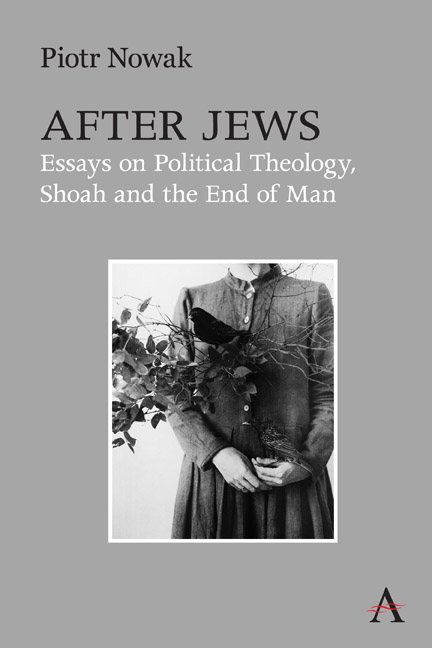Book contents
- Frontmatter
- Contents
- Preface
- Chapter 1 The Chosen Ones
- Chapter 2 The Secret of the Scapegoat
- Chapter 3 Making a Jew into a Christian
- Chapter 4 There Should Be Time No Longer
- Chapter 5 To Look Upon His Face and Yet Not Die
- Chapter 6 Ex oriente lux?
- Chapter 7 Pilloried by Necessity
- Chapter 8 German Rubble
- Chapter 9 Long Live!
- Chapter 10 The Living against the Dead
- Chapter 11 The Child of War
- Chapter 12 Plenty Coups and the End of the World
- Chapter 13 They Refugees
- Chapter 14 The Remainder of Christianity
- Bibliography
- Index of Persons
Chapter 8 - German Rubble
Published online by Cambridge University Press: 13 May 2022
- Frontmatter
- Contents
- Preface
- Chapter 1 The Chosen Ones
- Chapter 2 The Secret of the Scapegoat
- Chapter 3 Making a Jew into a Christian
- Chapter 4 There Should Be Time No Longer
- Chapter 5 To Look Upon His Face and Yet Not Die
- Chapter 6 Ex oriente lux?
- Chapter 7 Pilloried by Necessity
- Chapter 8 German Rubble
- Chapter 9 Long Live!
- Chapter 10 The Living against the Dead
- Chapter 11 The Child of War
- Chapter 12 Plenty Coups and the End of the World
- Chapter 13 They Refugees
- Chapter 14 The Remainder of Christianity
- Bibliography
- Index of Persons
Summary
Seven cities stood there.
So we think.
They were meant to stand forever.
We suppose. […]
A meteor fell.
Not a meteor.
A volcano exploded.
Not a volcano.
Someone summoned something.
Nothing was called.
On this more-or-less Atlantis.
The Allied Forces’ air raids of Germany happening toward the end of the Second World War were broadcast live by the BBC Radio. During one of the first air raids on Berlin, the live commentator was the (then) famous British journalist Wynford Vaughan-Thomas. The circumstances seemed banal: the steady roar of the Lancaster bombers, the impenetrable night—and only the journalist's genuine emotions imbued the situation with a sense of unusual dread: “Now, right before us lies darkness and Germany,” he commented in a tense voice. Moments before they reach the air defense Kammhuber Line, the aircraft's crew is presented to the listeners: Scottie, the flight engineer, in private—a cinema projectionist from Glasgow; Sparky—the bombardier; Connolly—the navigator; there is also the rear gunner, a Sussex farmer, and the skipper—who, however, choses to remain anonymous. The plot gathers speed once they are above the city. Shafts of light making the bombers easy targets for the German air defense, then the flashes of exploding anti-aircraft missiles, eventually some hits and the Allied Forces’ bombers plummeting down—this is what the citizens of the British Isles learn from the correspondent's report. Finally the order is given to drop the bombs on the city. Everything is happening very fast. The task has been accomplished. They are going back home. They unwind by becoming suddenly very talkative. “By God, that looks like a bloody good show. Best I’ve ever seen. Look at that fire! Oh boy!” And here's a literary rendition of a similar kind of awe:
A tiny hamlet that you wouldn't even notice in the daytime, with ugly, uninteresting country around it, you can't imagine how impressive it can be when it's on fire at night! You’d think it was Notre-Dame! A village, even a small one, takes at least all night to burn, in the end it looks like an enormous flower, then there's only a bud, and after that nothing. Smoke rises, and then it's morning.
- Type
- Chapter
- Information
- After JewsEssays on Political Theology, Shoah and the End of Man, pp. 109 - 122Publisher: Anthem PressPrint publication year: 2022



